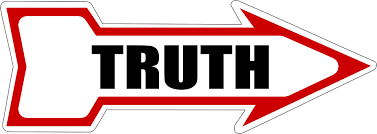Jump ahead to:
Presuppositional Phrases are the Language of Advertising
The following all contain presuppositions.
“Nothing whitens better than Crest”
“Why suffer another summer?”
“This year, I’ll stop asking ‘Do I look fat’?”
Notice the first statement does NOT state that Crest whitens better, yet it is implied. On a marketing and advertising podcast I listened to months ago, the guy who created that slogan said he was particularly proud of it.
The second statement presupposes that summer suffering is a thing.
The third statement presupposes you have in fact been asking “Do I look fat”?
These types of phrases help shape the way we think because they contain things we must assume to be true in order for the sentences to make sense.
In order to make sense of the sentences, our minds simply accept the assumptions as true.
For a very academic discussion of how presuppositional phrases are used in advertising, download the PDF below. NOTE: When you click the link below it IMMEDIATELY assumes you are downloading the document. In other words, in order to read it, you must download it first.
Pragmatic Functions of Presupposition in Advertising English
An Illustration of the Power of a Presupposition
I saw the image below in a Google Plus post and it’s perfect to illustrate the power of a good presupposition.

What is most interesting about that image is, there are no people in that picture. You’re looking at empty chairs.
So why do the overwhelming majority of people think they see a group of burqa-clad women? The text in the image tell us there is a “them”, and for us to make sense of the “them”, your mind presupposes there are people in the picture.
Now imagine the text read “Have you ever seen such ugly upholstery”? Would people then see burqa-clad women or empty chairs?
Building topically relevant links is hard. We make it easy.What is Presupposition?
In most situations, people accept presuppositions without conscious awareness. Presuppositions sort of “slip in”, yet have a surprisingly strong effect on what we believe.
Why does it matter that you know of them?
- We (metaphorically speaking) swim in an ocean of advertising messages (and political rhetoric) containing presuppositions. Knowing what they are and how they’re formed helps us see them, be more aware of them, and in turn be less susceptible to them. Knowing the “mechanics” of presuppositional phrases makes our bullshit detectors stronger.
- It helps you better sell stuff to others.
The Most Important Part of a Presupposition
Is that you do not think about them. They “slip in” without conscious awareness.
Another great presuppositional phrase is…
Make America Great Again
The phrase contains three presuppositions:
- American used to be great
- Is great no more
- Can be great again
On occasion when I see someone use that phrase in a social media conversion, I ask them: When was American great? And what made America great?
No one so far has answered this question directly. Usually, the person to whom I asked the question attacks me for being either anti-Trump or anti-American.
Building topically relevant links is hard. We make it easy.What Does This Have to do with Content Marketing?
Presuppositions are assumptions. Things that are assumed to be true. When you assume things to be true and do so effectively, you help your readers believe them.
Refer back to the advertising examples at the beginning of this article.
- Crest toothpaste isn’t better,
- Not everyone suffers through summer,
- And not everyone asks themselves if they look fat.
But presupposing these things to be true (when done subtly) DOES, in fact, help people believe these things are true, which in turn helps sell stuff (toothpaste, air conditioning, and diet programs).
When selling something to someone, it helps for them to believe they have the problem you help solve.
In the course of simply talking with people about your products or services (face to face, via web site blog posts, or through advertisements) if you “talk straight” (avoid the use of presuppositions) a number of people will feel that what you’re selling fits a need they have.
Through the use of presuppositional phrases, you can help people believe they have the problem you solve, and you can help them believe the solution you provide will help.
Then the number of people who feel that what you’re selling fits a need they have goes up.
That is why presuppositional phrases are the language of advertising (and political campaigns).
Have you ever noticed that drug companies directly market conditions? Not drugs?
By presupposing the conditions are real (and prevalent) they sell drugs.
Building topically relevant links is hard. We make it easy.Isn’t this Manipulative?
They can be. But…… We all already swim in an ocean of presuppositions. We see them in ads, in political rhetoric, in religious writings, and (sadly) increasingly on the news.
I feel it’s important to point out that just because something is presupposed to be true does NOT mean the person or statement is lying. While people DO use them to lie, people also use them to more strongly emphasize the truth.
I find it useful to think of presuppositions as tools. When used for good, they’re good. Because some people and organizations use them for bad does not mean you should avoid using them.
When you say “He headed north” (which presupposes “he” exists, was here, and is no more) you’re not lying if in fact he did head north.
So, Learning Them Has a Double Benefit
The first benefit of learning presuppositions improves your BS detector. By being aware of what presuppositional phrases are and how they’re structured, you become less susceptible to them.
The second benefit is it improves your copywriting skills, which helps you generate more leads and sell more stuff.
Building topically relevant links is hard. We make it easy.Where Should You Use Them?
I’m almost tempted to ask “Where DON’T you use them?”, but there are places that are more relevant than others.
Particularly excellent places to use presuppositional phrases are:
- Titles/Headlines
- Calls to Action
- Landing Pages
How do You Learn Them?
I freely confess, learning presuppositional phrases is pretty boring. It’s sort of like learning the periodic table (less intense, but still boring).
There are 25 distinct types (seriously), some types have subtypes, and they have technical (even clinical) sounding names.
For example, the Simple Presupposition is where some form of noun presupposes the existence of someone or something, such as the “He headed North” example above.
I recommend two ways to learn them.
- Read more about them and see examples of their use.
- Practice creating them.
To that end, I recommend two resources.
One is an academic paper written by Lauri Karttunen and published in 1973. It’s 26 pages long and I’m not recommending you necessarily read all of it (I haven’t) but rather look at the examples in the paper to get more familiar with presuppositions. A link to it is below.
Presuppositions of Compound Sentences
The other is an interesting study guide on the website of an NLP practitioner I know. A link to it is below.
As with anything, the best way to learn them is to practice using them.
If you’re so inclined, I once created a practice worksheet for myself which I provide below. It is based on the study guide of the NLP practitioner (the link immediately before this paragraph. Simply print a copy (or two or twelve) and practice writing out presuppositional phrases.
Presuppositional Exercise Worksheet
In Closing
- I see presuppositional phrases EVERYWHERE.
- If you study them you will too, and very soon.
- Advertisements and political campaigns are very “target rich” environments.
- Learning them makes your BS detector stronger.
- Using them in your ad copy, web pages, and blog posts (and conversation) helps you sell more stuff.
So how are you going to learn them better?
Building topically relevant links is hard. We make it easy.